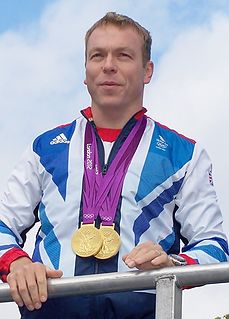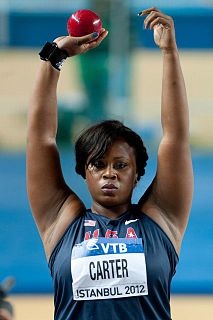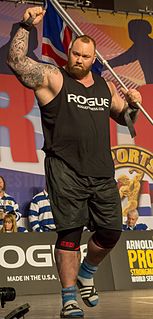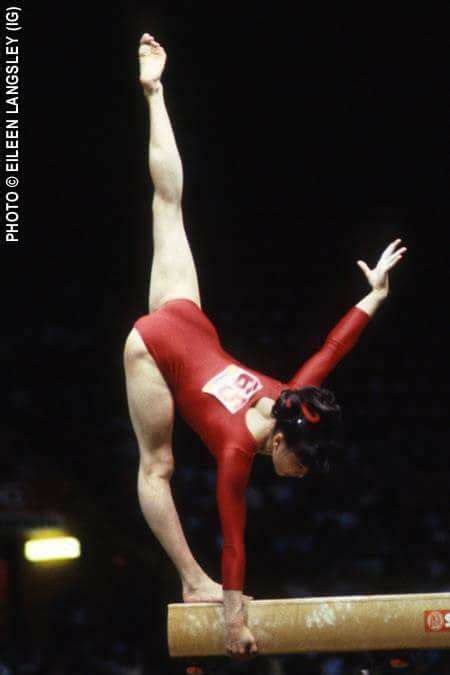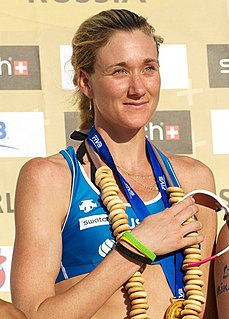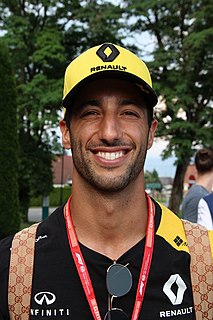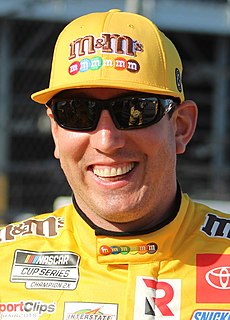A Quote by Chris Hoy
In terms of actual day-to-day training; a normal training day would begin with a gym session for about two hours, focusing on strength; so heavy weights on the lower body, with the main exercise being free weight squatting, with between one and ten repetitions depending on the time of year and the aim of the session.
Related Quotes
I exercise about 40 minutes a day, and I'll run one day and do circuit training the next day. I live in an area where there are brilliant hills and mountains, so I get a good hill run with my dog. At home, I'll do the circuit training with old weights, along with pull-ups in the trees and that sort of stuff.
At the gym, I do full-body circuits with low weights and high repetitions, as well as four or five cardio intervals thrown into the mix. I put a lot of emphasis on core strength and flexibility training. I also do a lot of running in my free time. Anytime I can move my cardio outside in the sunshine, I do.
The problem I used to have is that I would eat in the morning, get busy training, and then maybe I'd have a shake or two throughout the day, but I wouldn't really eat anything. Then, at night, I would just kind of eat a larger meal or two, but by my second training session, I was usually kind of beat up or worn down.
Each training session I'm getting better and better. I have no other duties now, no worries, it's all about training, eating and sleeping. I have a lot more time and can put a lot more effort into training. I'm feeling better every day. As long as I'm feeling myself I'm definitely in no doubt I can go to the Olympics and win.
On a normal day, I crawl out of bed before 8 A.M., have a protein shake, chuck my gym kit on, and go for a class or personal-training session. When I'm back, I'll have poached eggs with salmon or spinach for breakfast before my stylists arrive to do my hair - which takes ages. I then go wherever I am needed.
If you are training properly, you should progress steadily. This doesn't necessarily mean a personal best every time you race ... Each training session should be like putting money in the bank. If your training works, you continue to deposit into your 'strength' account ... Too much training has the opposite effect. Rather than build, it tears down. Your body will tell when you have begun to tip the balance. Just be sure to listen to it.
